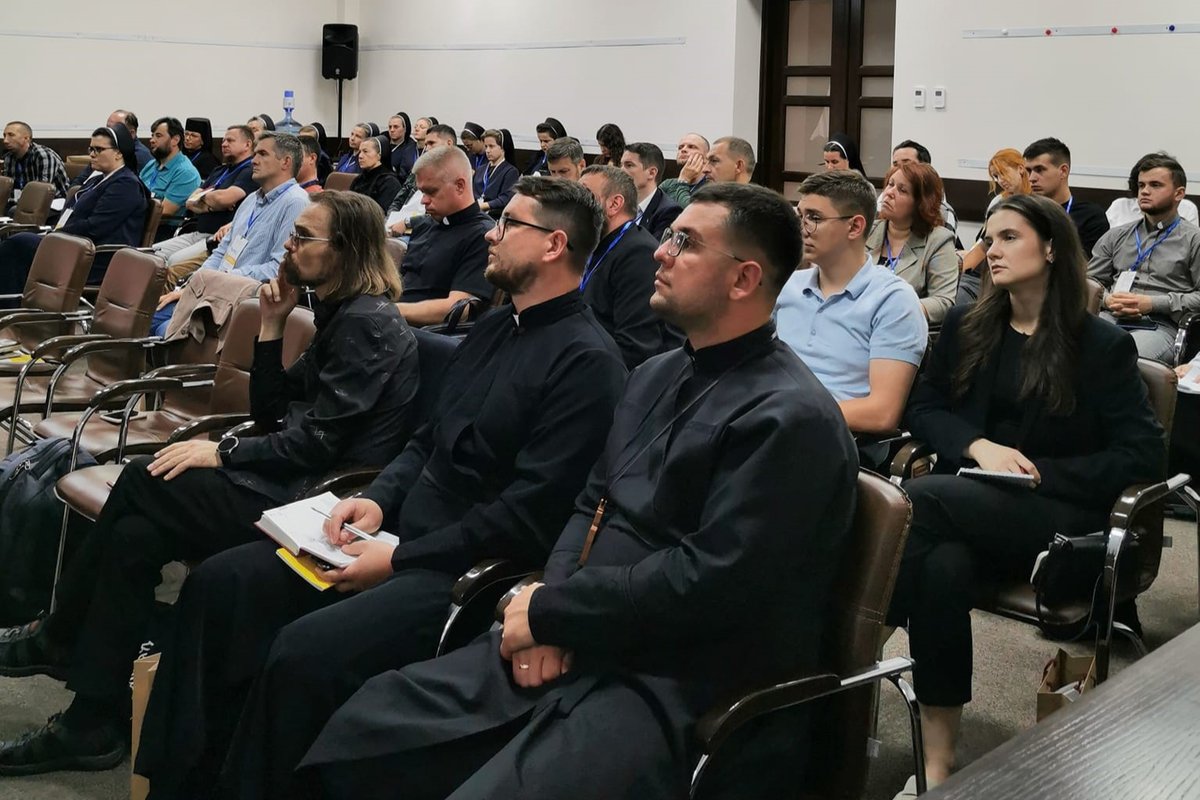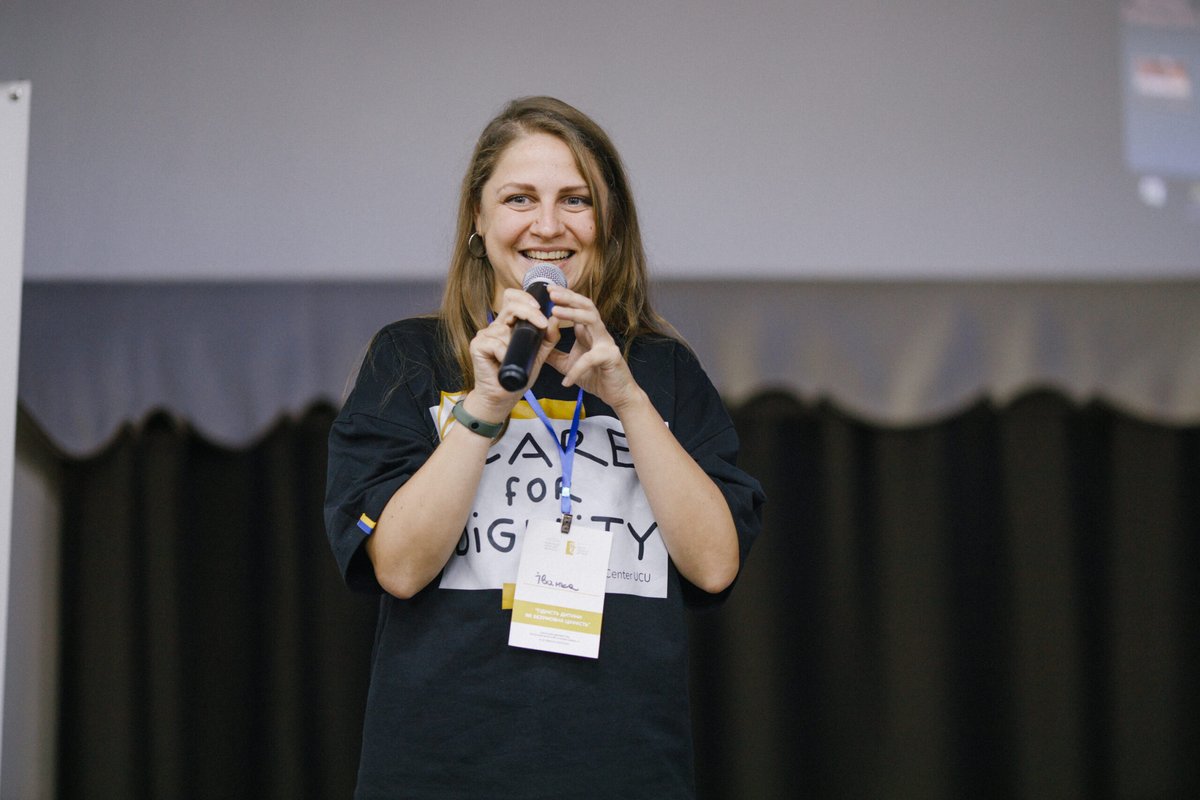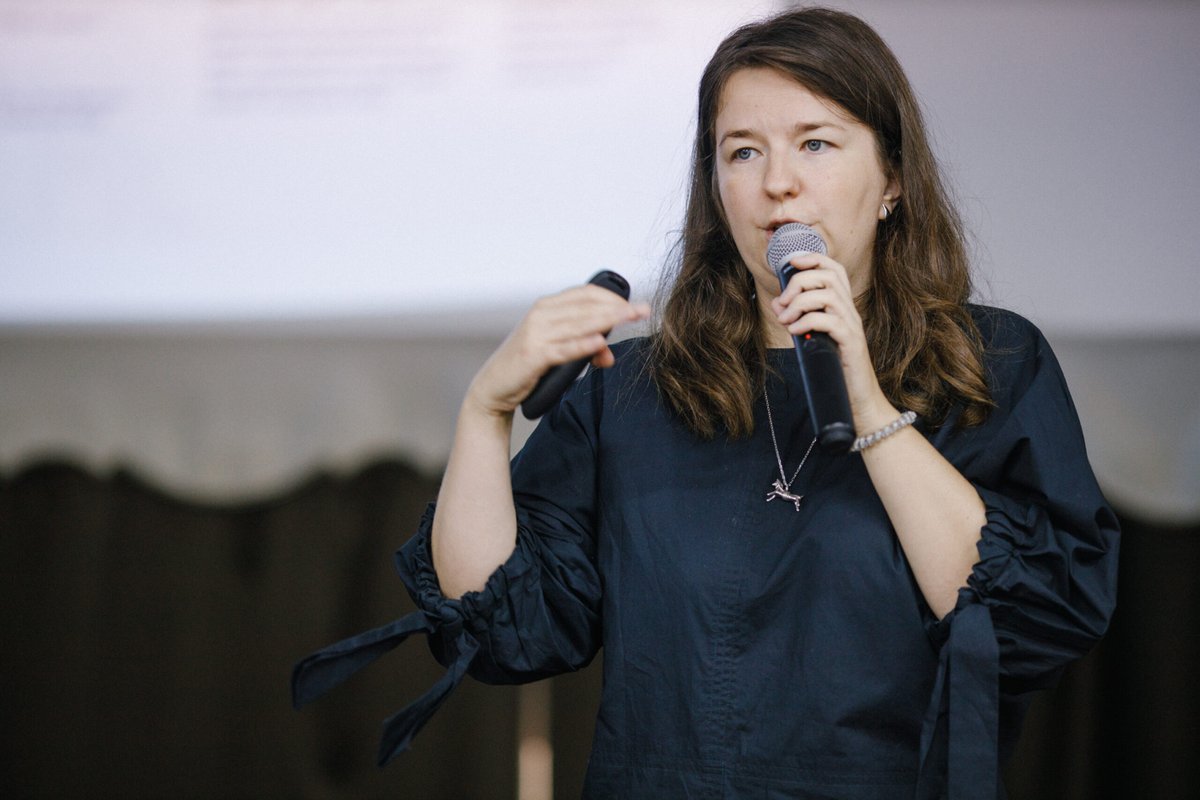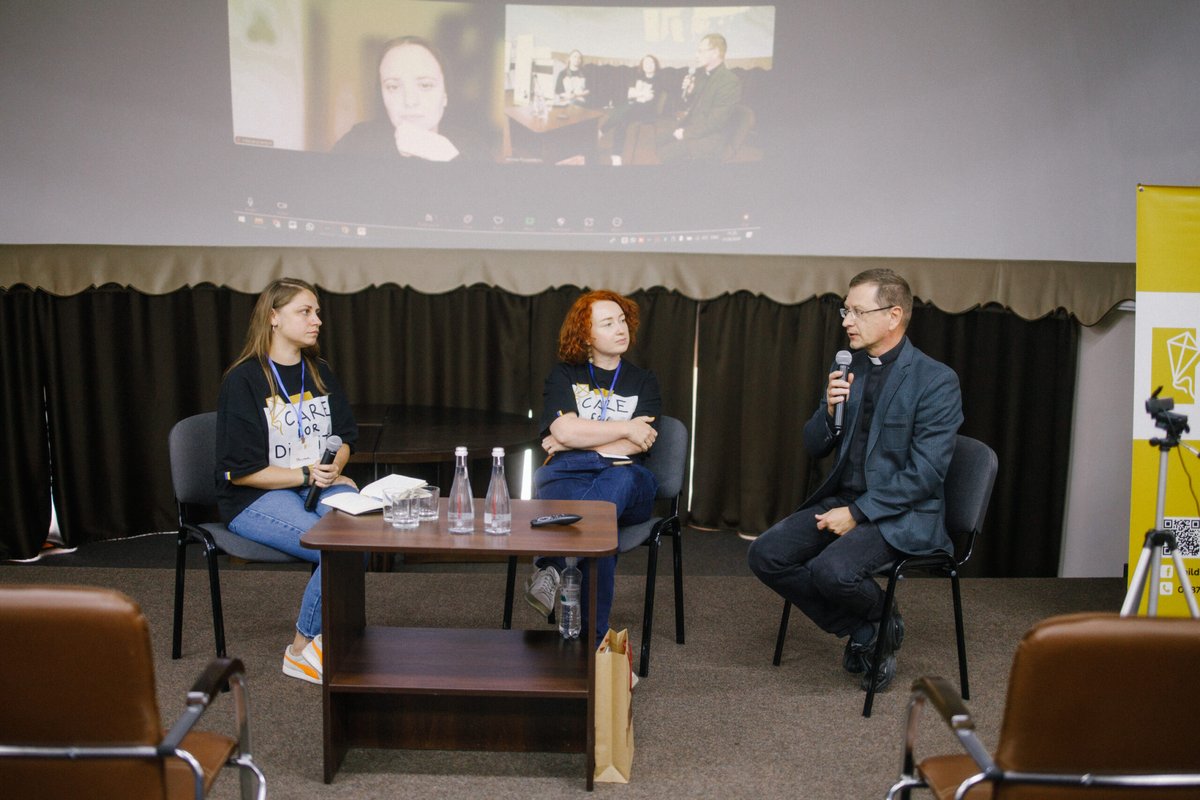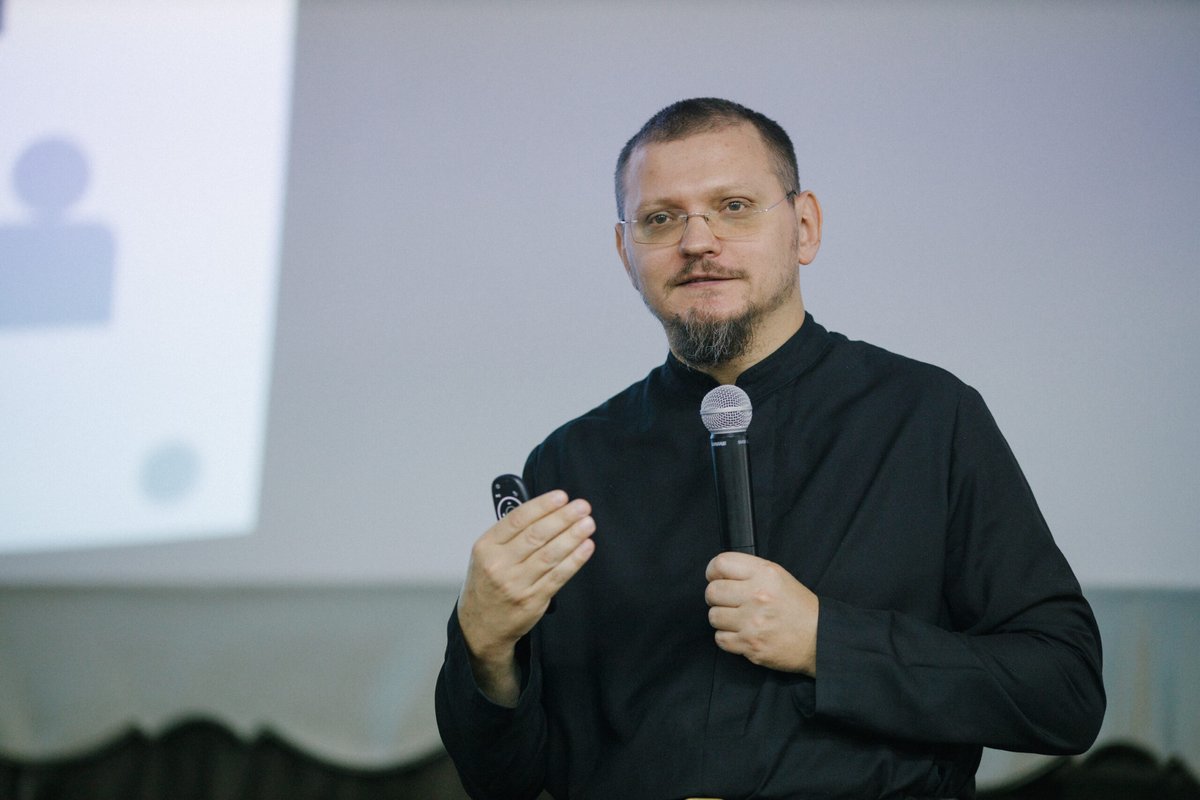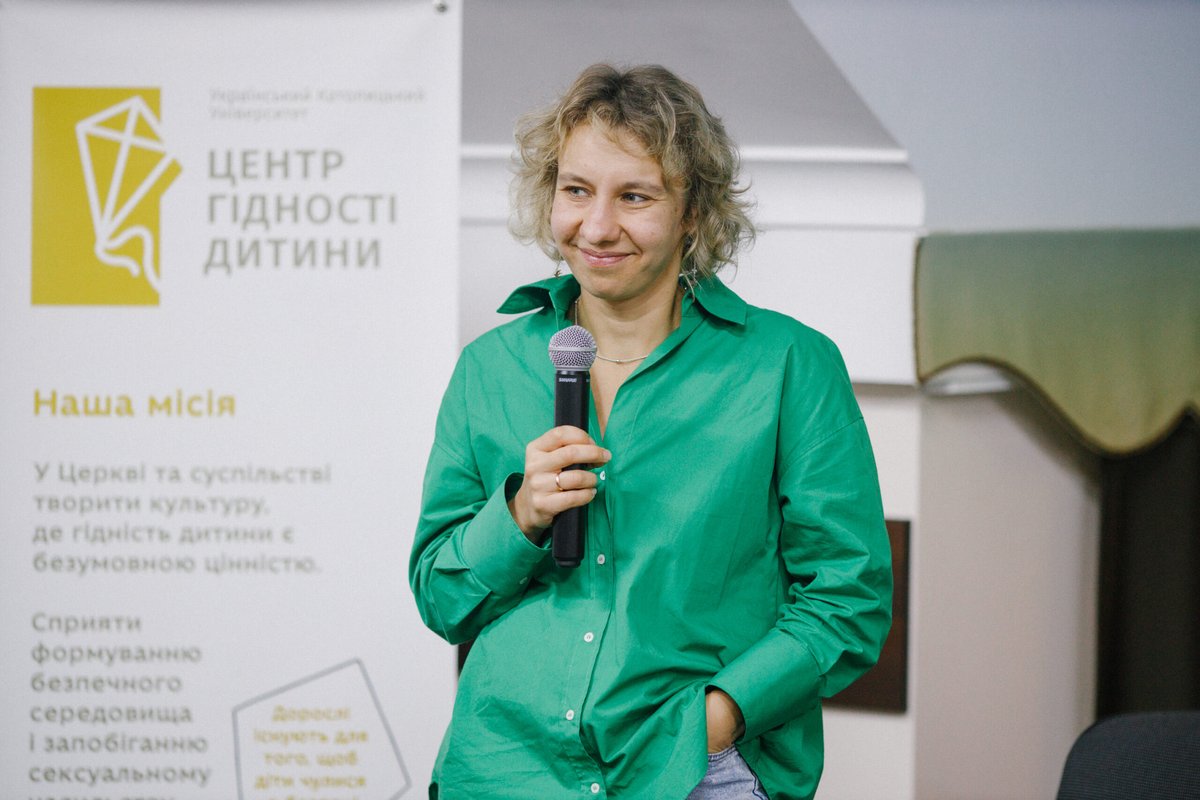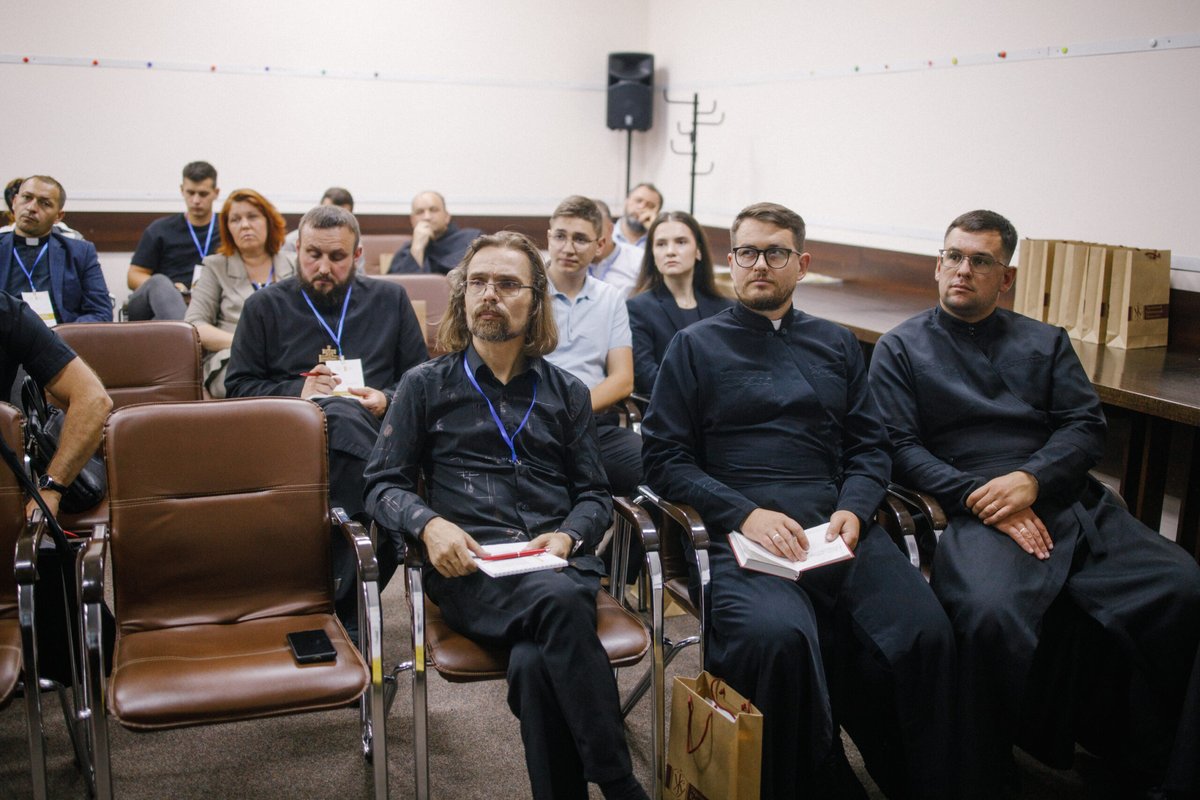The dignity of the child as an unconditional value - a school for clergy and laity on combating violence against children was held
About 60 people from 5 different denominations took part in a two-day school for clergy, consecrated persons and lay people from the Center for the Dignity of the Child at UCU. Over the course of two days, the participants discussed methods of combating violence, how to interact and help persons who have experienced abuse, and also gained practical experience in dealing with cases of abuse.
The fifth school from the Center for the Dignity of the Child of the Ukrainian Catholic University became the largest in terms of the number of participants, as well as interfaith. The formation was attended by representatives of the Ukrainian Greek Catholic Church, the Roman Catholic Church in Ukraine, the Orthodox Church of Ukraine, and the Ukrainian Church of Evangelical Christians. Protecting children from violence, creating a safe environment for their growth is a common cause.
The UCU Center for the Dignity of the Child gives priests, consecrated persons, lay people the opportunity to gain knowledge and tools to understand what a safe environment for a child means and how to create it. The school provides the basic knowledge that anyone who works with children should have and wants to know how to prevent violence against minors, or to respond sensitively to the fact of violence in order to really help the victims. During two days, the participants considered the following questions:
- the child's place in the church;
- the situation regarding sexual violence in Ukraine, the experience of the church on this topic;
- the concept of violence against minors and vulnerable persons, types, signs;
- the reality of the affected child and how to talk to him;
- who can be the offender, how can we find him;
- actions in case of detection of violence against children in the church environment - what to do and how to communicate;
- violence prevention mechanisms and effective crisis communication when cases of abuse are detected.
The school provides basic knowledge. The next stage is training, where these issues are studied in more depth.
At the beginning of the school, participants were greeted by Ivanka Rudakevich, coordinator, head of projects and programs of the Center for Child Dignity of UCU. Teresa Devlin, coordinator of the regional group for Europe of the Pontifical Commission for the Protection of Minors, also joined online. Ms. Theresa has vast experience in combating violence against children and shared with the audience the most important points that will ensure a systematic approach to the protection of minors and vulnerable persons.
The head of the Center for the Dignity of the Child at UCU Khrystyna Shabat talked about the research conducted by the Center for the Dignity of the Child UCU together with the research agency Fama "Sexual violence in Ukraine: from awareness to protection" (2021). According to the data, 23% of Ukrainians were sexually abused as children, and 4% were victims of rape. During war, the general level of violence increases, and sexual violence during war is classified as a crime against dignity and has no statute of limitations.
Afterwards, the participants had a panel discussion "A child's place in the Church. What is a child-friendly Church" with the participation of Natalia Tarnovska, head of projects and programs of the UCU Center for Child Dignity, Father Ihor Petsyukh, a UCU clergyman, Redemptorist sister Tadeja Yartim, an expert of the "Child-Friendly Church" project. During the discussion, those present expressed their own opinions about what affects the safety of a child in the Church, and also recalled the words of Jesus: "Let the children go! Do not prevent them from coming to Me, for such is the Kingdom of Heaven" (Mt 19, 13-14).
Yuliana Maslak, a child psychiatrist and psychotherapist in the method of cognitive-behavioral therapy, talked about children's injuries, their causes and consequences, how to talk to children who suffered injuries during the war, as well as who the offender might be, by what signs we can recognize him , which "red flags" in behavior indicate that this person may commit violence against children.
Studies confirm that the impact of a traumatic event on a child depends on the dose, frequency and type of trauma. After rape, in most cases, the victim will experience post-traumatic stress disorder. It can manifest itself through symptoms of re-experiencing the event. A child may suddenly stop going to school or meet friends. Emotional cognitive changes, emotional numbness or hyper-anxiety appear.
"Children can have an angry reaction, misbehave because of the experienced stress, so sensitive adults should be there, share their feelings, live the moment and become a support," Yuliana Maslak emphasized.
Candidate of psychological sciences, psychologist, positive psychotherapist and clinical psychologist, associate professor of the Department of Clinical Psychology of UCU, Oleksandra Nizdran, spoke about the basic principles of working with victims of sexual violence.
One of the reactions of a child who has experienced violence may be distrust of others. So you should be patient. "If a child talks about what happened to him, it is important to establish contact, a warm attitude, show sensitivity, listen without interrupting, and not show excessive emotional reactions. Behave calmly, stably and benevolently, be a good listener and do not judge, so as not to cause feelings of shame and guilt. To create a conversation in which a person can share, and we can listen," noted Oleksandra Nizdran.
The abused child has low self-esteem and tends to blame himself for what happened to him. We can support the child, tell him: "What happened is not your fault, violence is a crime and I see that you are coping bravely and you should not live with guilt or shame about this situation."
The assistant bishop of the Ternopil-Zboriv Archeparchy of the UGCC, canonist, Bishop Teodor Martyniuk familiarized the school participants with the list of crimes of a sexual nature against minors and vulnerable persons. The Church calls them crimes against the Sixth Commandment of the Decalogue. Bishop Theodore explained what responsibility Church workers and volunteers bear if they commit similar crimes, which is the mechanism of action in the UGCC when reporting crimes of sexual violence. The issues of responding to cases of abuse and prevention of such cases are regulated on the basis of the "Code of Canons of the Eastern Churches" and the documents "Protection of the Holy Sacraments" and "Norms and principles of the protection of minors in the pastoral activities of the UGCC of Ukraine."
In the Catholic Church, the investigation of crimes committed by a bishop, priest or deacon is handled by the Vatican, namely the Dicastery for the Doctrine of the Faith, the body that has jurisdiction over crimes against the sixth commandment.
"Unpunished crime means continued crime. That is why there must be a fair investigation and an appropriate punishment," noted Bishop Theodore.
Hieromonk-psychologist Sava Masnyk spoke about the Church's experience in preventing violence against children. The father explained that it is very important to treat the injured person without judgment and with respect. Spiritual support is also important for the victim and his family.
Veronika Savruk, head of the information and marketing department of UCU, shared an expert view on how the diocesan community should communicate in the case of sexual abuse of minors, committed by an employee or volunteer of the Church. Communication in times of crisis requires coordinated work, quick and coordinated response with the team, an empathetic attitude, the ability to take responsibility and not to keep silent about the problem. There should be a spokesperson who will explain the situation in an accessible form and how the organization reacts to it and what are its further actions to restore justice.
"Different crisis situations can arise at any moment, but it is important how we react to them. The reputation of the company, institution or parish will depend on our balanced and empathetic reaction and appropriate communication," Veronika Savruk summarized.
At the end of the training, the participants were given a practical task: analyze real cases of sexual abuse and present to the audience and experts an algorithm for responding to each case.
The participants of the study told about their participation in the school.
Sister Olga Lozynska from the Lviv Archdiocese:
"I want to note the practical direction of education. Thanks to the information I received at school, I gained a better understanding of the behavior of the children I work with. Their behavior, which I often did not understand before, may be the result of experienced traumatic events."
Father Yeremia Stochanin, licentiate of canon law, secretary of the abbot, master of the novitiate, Holy Dormition University Lavra of the studio charter:
"I really liked the training itself and its organization. Strong teaching staff, professional approach of expert psychologists. Advice on crisis communication was important and practical. In general, all participants were interested and included in the training, which is especially pleasant."
Father Volodymyr Bugrak, rector of the Cathedral of the Transfiguration of the Lord in Kremenets, Ternopil Diocese of the OCU:
"Amazed by how the reaction mechanisms in the Roman Catholic and Greek Catholic Churches are developed, we can take this experience for ourselves. I also want to note the professionalism of the invited trainers, the lectures of psychologists were especially useful."
Taras Kobryn, executive director of the "Lviv Children's Care Center" public organization (a day care center for school-age children from families of SZH, IDPs, and military personnel), Ukrainian Church of Evangelical Christians:
"The subject of children who have been sexually abused is an important but little-discussed issue in our society. Unfortunately, there are reasons why so little is said about it.
The training itself was very important, also for the reason that it included representatives of different directions of the Christian church, it showed the importance of uniting joint efforts to help those who have already suffered or may suffer from violence."
Veselska Alla, coordinator of the work of the Commission for Youth Pastoral Affairs of the RCC
"At school, I liked that the participants were ready to discuss the topics of violence against children, which speaks of their mature level. and also note the high level of the lecturers and the practical knowledge I received. Analysis of cases and the support of a psychologist were especially useful. The results of the UCU Child Dignity Center's research on sexual violence were also necessary and useful."
Father Vyacheslav Saveliev, rector of the Cathedral of St. Nicholas the Wonderworker in Kremenets, Ternopil Diocese of the OCU:
"You need to be observant about the children you work with, pay attention to signs that may indicate the experience of violence. The school was a good start to deepen one's own knowledge of combating violence against children. I am pleasantly surprised by the expertise of the experts and am very grateful for the opportunity to participate."
Photo: Maria Varanytska
